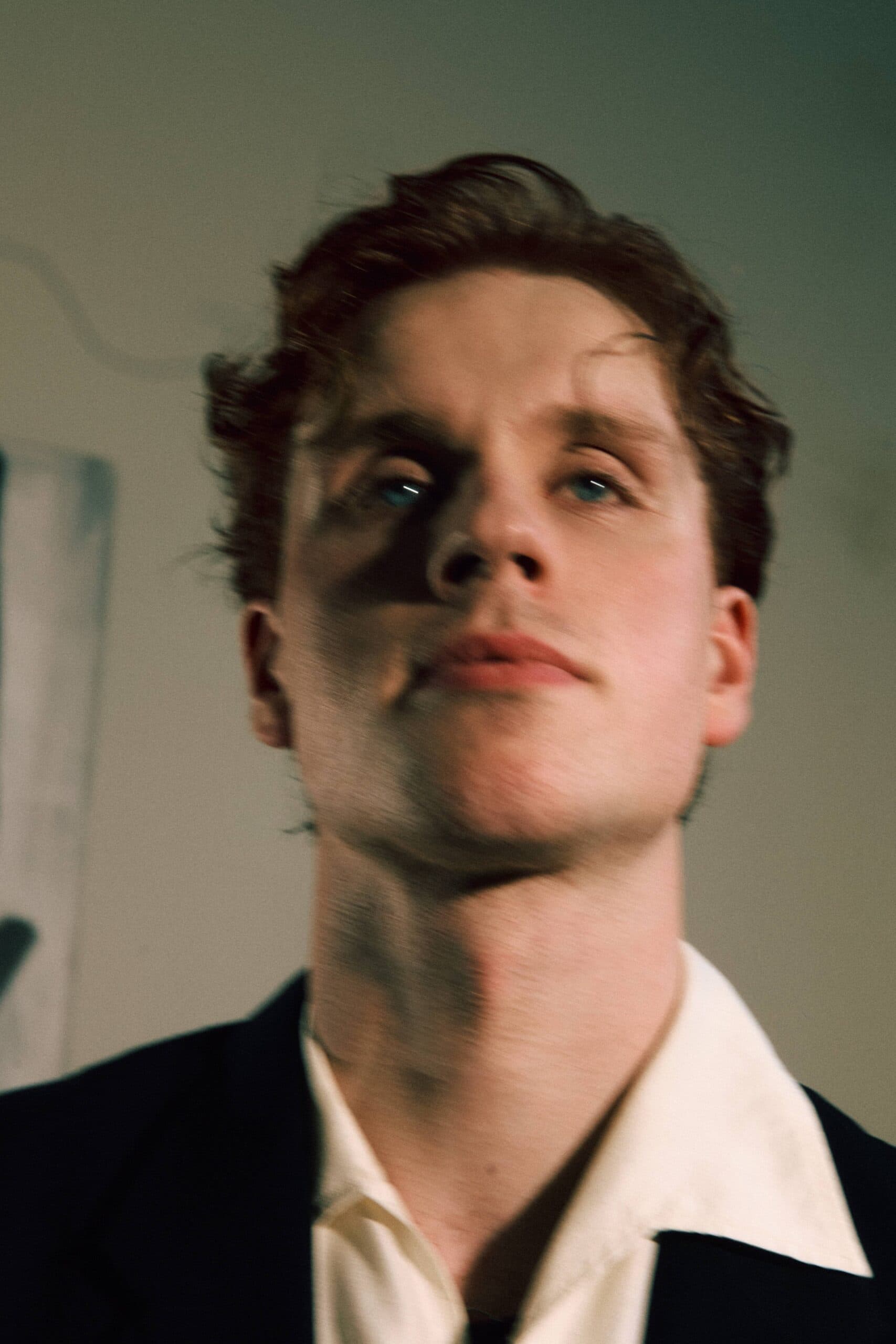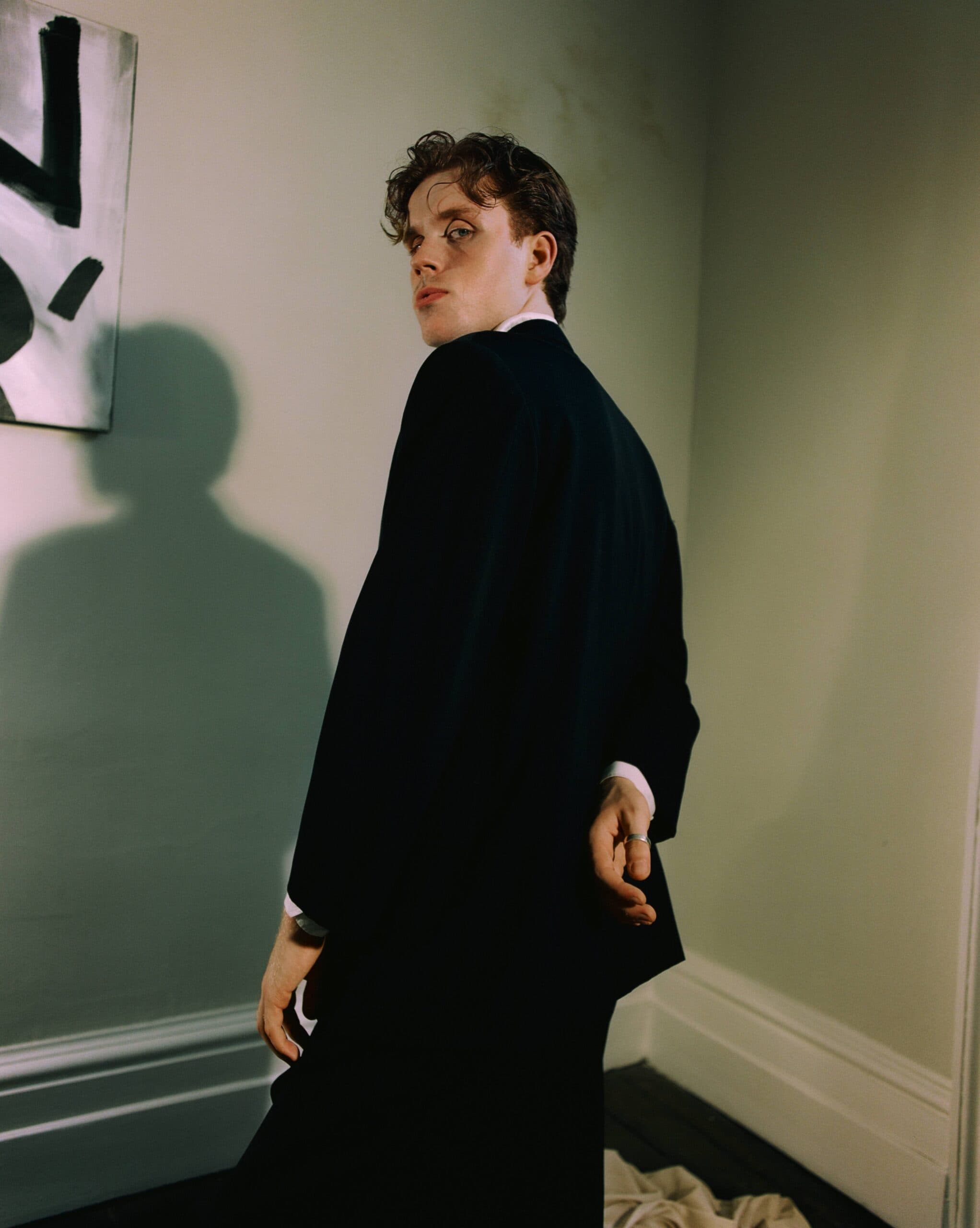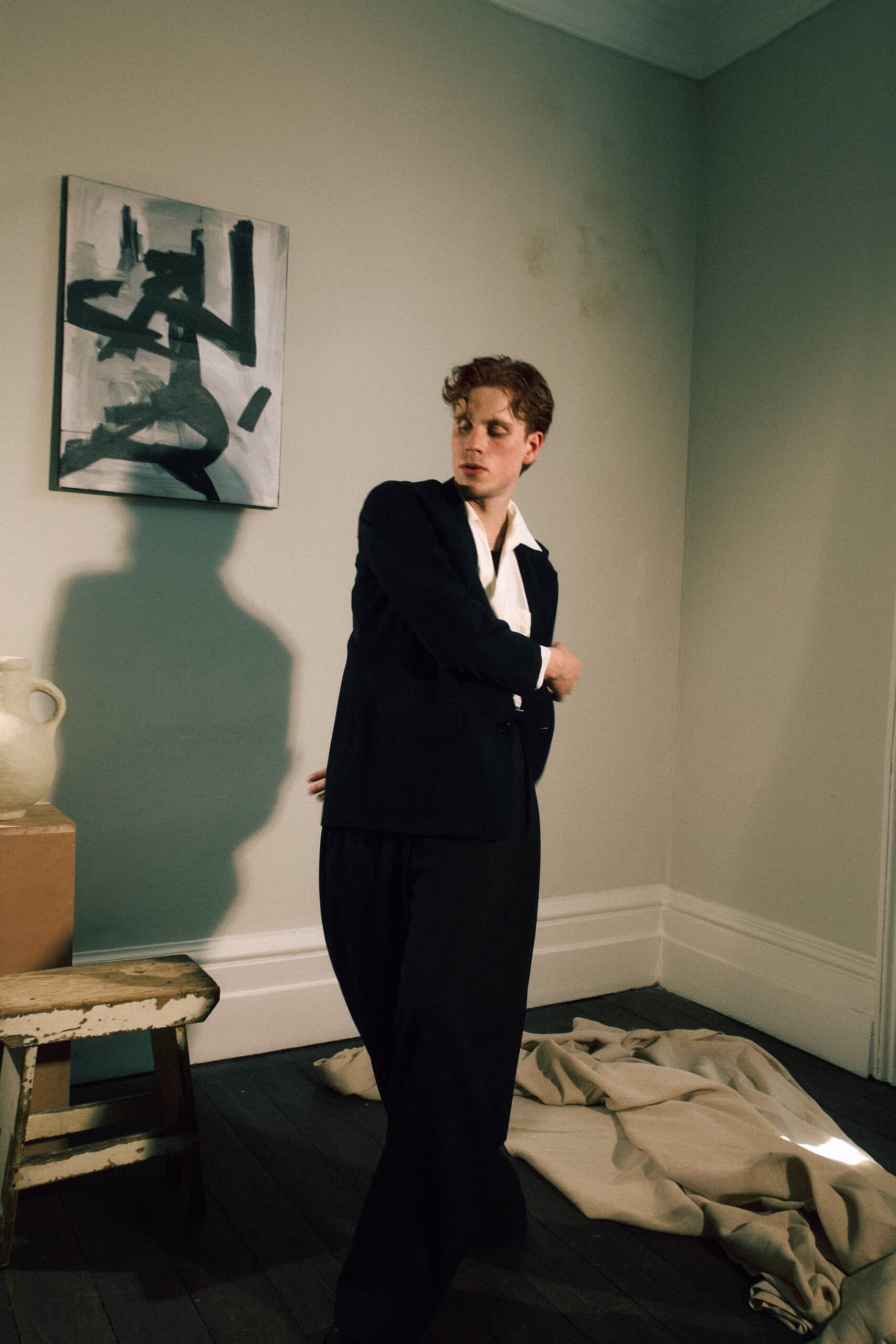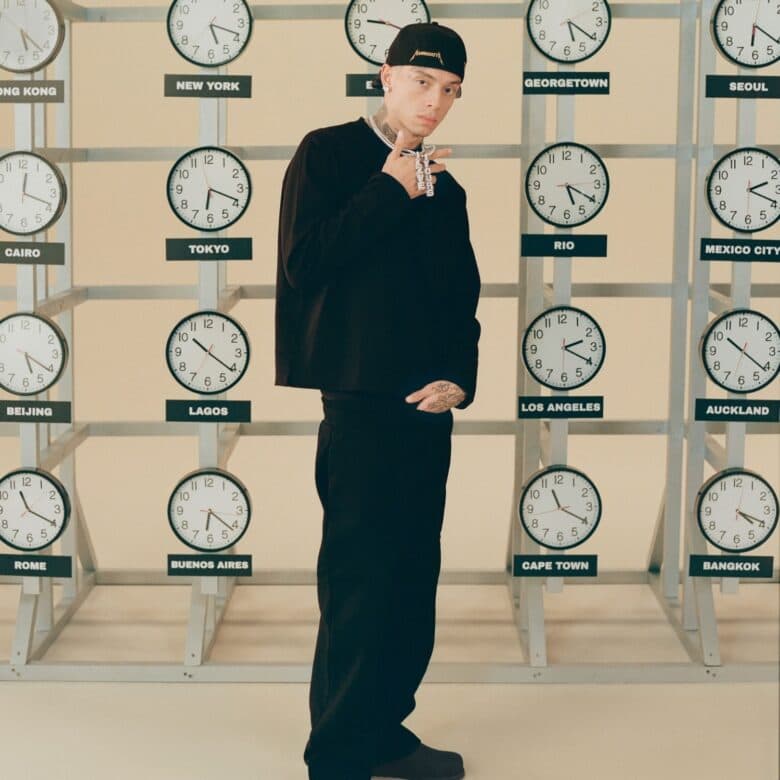Five minutes with Sebastian Schub — London’s latest folk hero is going global

It started in the sweaty corners of Camden’s Spiritual Bar – the same hallowed ground that launched Michael Kiwanuka and Jade Bird. Armed with just a guitar and that sonorous baritone, Sebastian Schub would fight to be heard over the pub chatter, learning to command attention in the most unforgiving of spaces. “Sometimes it can be quite brutal,” he reflects, though the Cillian Murphy-esque singer has clearly mastered the art of making rooms fall quiet.
It’s a skill that’s serving him well beyond the pub circuit. His debut single “Sing Like Madonna” has already hit a million streams, though you get the sense he measures success in moments of hushed attention rather than numbers. Growing up between Germany and London left him with a unique relationship to language: “I spent most of my childhood loving music without understanding the words,” he explains. “That equipped me with a sensibility to make songs resonate through energy and tone alone.”
Now signed to Island EMI Label Group, Schub is proof that even in the TikTok era, there’s still something special about silencing a pub with just a guitar.

There’s something special about silencing a pub with just a guitar these days. Do you miss those raw, unplugged moments now you’re signed?
Actually, I’m still playing those smaller shows. We’ve been doing quite a few intimate gigs, and I sneak around to jump on smaller stages whenever I can. There’s something special and undiluted about those performances. Regardless of where my career takes me, I think I’ll always do that.
A million streams on your debut is huge, but you built your following from the streets up. Does success hit differently when you’ve done it the long way?
The response has been wonderful. I don’t think it matters where someone is in their career or how long they’ve been at it—if you pour love and work into a song and people respond passionately, it’s always bliss.
How has growing up between Germany and London influenced your songwriting?
It’s had a huge influence and left me with a deep appreciation for language. As a non-native speaker, I’ve always felt insecure about my lyrical abilities, so I overcompensate by obsessing over them. I think songs need to work even if you don’t understand all the lyrics. Growing up in Germany, I spent most of my childhood loving music without understanding the words. That equipped me with a sensibility to make songs resonate through energy and tone alone.
You’ve been compared to everyone from Jeff Buckley to Hozier. Who has genuinely shaped your sound?
Those two are definitely influences, but more than anyone, I was shaped by artists I’ve met in London. There’s an amazing community at Spiritual Bar in Camden. Some musicians there taught me so much about writing and performing. I still channel them when I write.

What did those early Spiritual Bar open-mic nights teach you about connecting with an audience?
They taught me to never take someone actually stopping to listen for granted. It’s a great way to try new songs too. There’s something very immediate about how a small room either falls silent or doesn’t. Sometimes it can be quite brutal.
Your performances are described as needing “no amplifiers, no band, no equipment.” Was this minimalist approach intentional?
It was born out of necessity—I couldn’t afford a bigger setup at first, and I traveled a lot, so traveling light was important. Now I’m looking forward to expanding the sound and increasing the volume.
How do you stay true to winning fans the old-school way while navigating the TikTok era?
Busking around London and Dublin, and TikTok are actually quite similar. There’s always a steady stream of people flowing past, and you have to somehow get them to stop and stick around. For musicians, TikTok is like the world’s biggest open-mic night.
What drew you to blending Irish folk with American blues?
I’ve always been drawn to unfiltered, intense music. I love when the stakes are high and a performance leaves nothing on the plate. I wouldn’t want to feel like I’ve held anything back, and you can’t fake that with either genre.
Tell us about “Sing Like Madonna.”
Madonna is an icon. Some artists completely transcend their medium. Madonna, Freddie Mercury, Bruce Springsteen—their work and personas have resonated so deeply that they’ve become almost divine. As Chappell Roan recently reminded us, it’s important not to forget the actual people behind these larger-than-life personas, but creating work with such profound impact is something to strive for as an artist.

How do you see balancing intimate gigs with the industry push toward bigger venues?
I’m excited about it. I’ve always yearned for a bigger sound and I’m a sucker for fancy lighting! I’ve always admired artists who can maneuver effortlessly between big and small moments.
Do the Buckley and Ben Howard comparisons feel like a weight when you’re trying to carve out your own space?
Artists like those shine through their proficiency for the craft and unwillingness to compromise. That’s something I admire and try to take to heart. They’ve set the bar so high. I actually saw Ben Howard perform in London recently and I’m still in awe. Watching uncompromising artists like that shows me how much there is to learn. I still feel like a novice.
What’s next for you?
I’ll have plenty more music coming out and am looking forward to playing many more shows wherever will have me. I’m really only just getting started.




